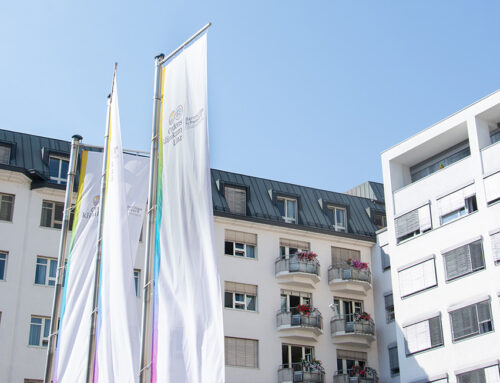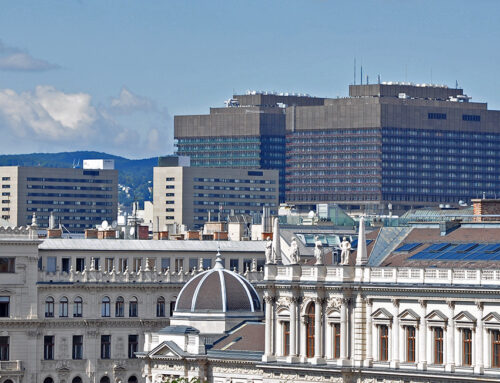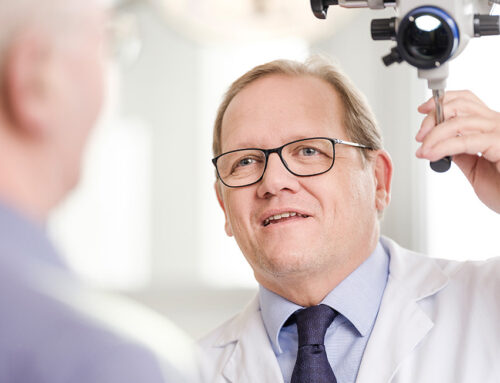Cooperation against hearing loss
80 percent of people with moderate to severe hearing loss live in developing countries. Austria is joining forces to provide support.
Sebastian Holler MA MA, Hearing Healthcare Alliance
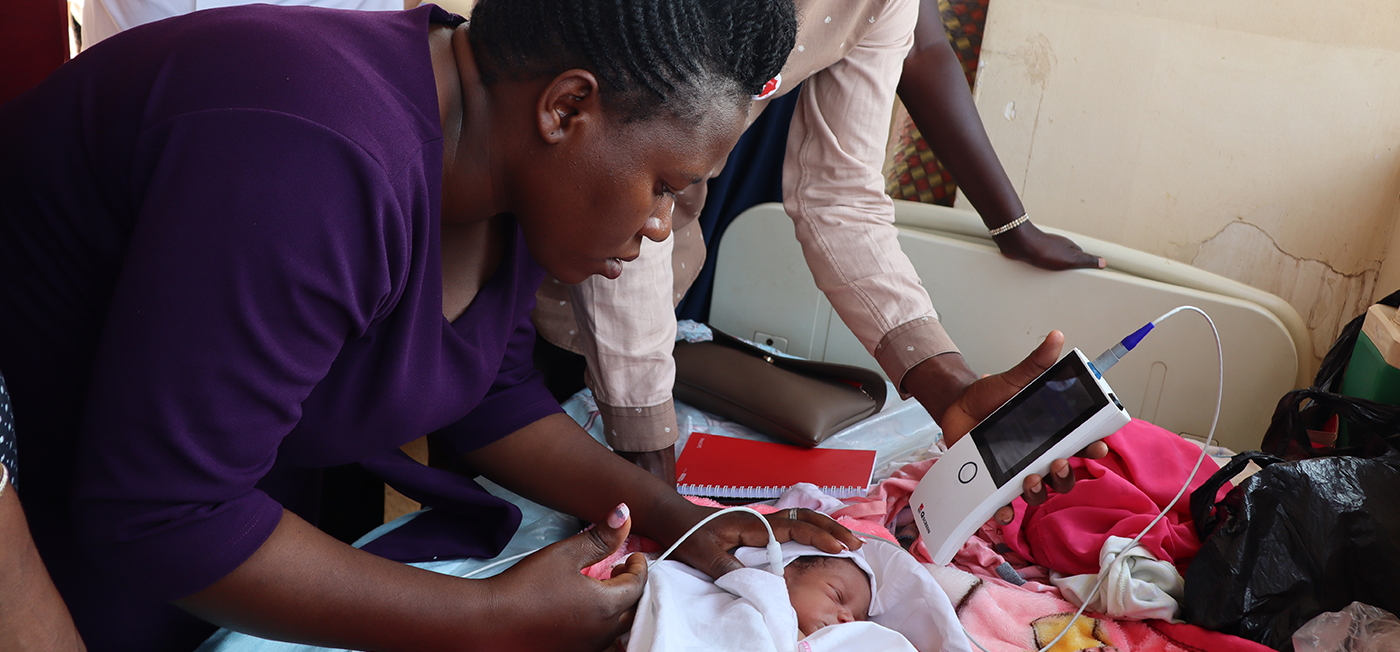
entwicklung_featured
Mishal looks at the audience. Renowned members of the Pakistani society and ENT doctors together with the ambassador and the Austrian business delegate are eagerly waiting for her to start speaking. The 13-year-old will hold a speech at the launch of the Hearing Healthcare Alliance in Pakistan, an initiative of the Austrian Development Cooperation OEZA and MED-EL.
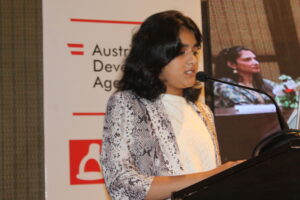
CI user Mishal at the opening ceremony of the Hearing Healthcare Alliance in Pakistan ©MED-EL
Mishal was born without hearing. She was lucky that this was discovered during a newborn hearing screening. Thanks to a cochlear implant, she learned to hear and, with intensive speech therapy, to speak. This would have become more difficult with every year without treatment. Most children in Pakistan are less fortunate. As in many other developing countries, there is no standard hearing screening for newborns in this South Asian country. There is also a lack of ENT specialists, speech therapy services and access to hearing aids and hearing implants.
Hearing health for a life without poverty
Robert Mandara, President of EURO-CIU, emphasized the urgency of free access to hearing aids at the symposium of the European CI umbrella organization in April 2024. “It is crucial that we look at CI care from an international perspective and standardize it across Europe and beyond.” Alongside the newborn hearing screening, ENT medical care and hearing rehabilitation services, the provision of hearing aids is one of the cornerstones of good hearing healthcare. In 2021 World Report on Hearing, the World Health Organization (WHO) also called for ear and hearing health to be accessible to all people worldwide.
According to WHO, around 80 percent of the 430 million people in developing countries live with moderate to severe hearing loss. Especially there, deafness has far-reaching consequences. Those who suffer are directly affected in their quality of life. However, the development of their home countries is also affected: Deaf people are usually only able to participate in social and economic life to a limited extent and are therefore also at bigger risk of poverty.
In order to provide people in developing countries with access to hearing healthcare, the Austrian Development Agency ADA, the agency of the Austrian Development Cooperation work together with the Tyrolean medical technology company MED-EL and ENT specialists in the affected regions. The Hearing Healthcare Alliance established within this framework provides help on the ground - it improves the quality of life of those affected and strengthens local hearing healthcare provision in 14 developing countries in Africa and Asia in the long term.
Working together for sustainable development
“The private sector has enormous potential to reduce poverty and give people the right tools for a good life,” says ADA Managing Director Friedrich Stift, explaining the reasons for the increased partnership with companies. Founded in 2004, the Austrian Development Agency acts on behalf of the Austrian Federal Ministry for European and International Affairs. It implements the operational funds of Austrian development cooperation. Inclusion is an important goal in all projects and programs funded by ADA. Together with other donors, ADA also participates in multilateral development projects and utilizes the innovative power of private companies such as MED-EL.
The Austrian pioneer for implantable hearing solutions has extensive expertise in hearing health and hearing rehabilitation as well as a broad network of renowned specialists around the world - both as a basis and as a result of its implant development. The company contributes expertise to the Hearing Healthcare Alliance. Together with over 120 local and international partners, the Hearing Healthcare Alliance is building missing structures for better hearing health in order to sustainably improve the lives of over 100,000 people.
In 2020, a jury consisting of Caritas, the Federation of Austrian Industries, the Red Cross, respACT, Umweltdachverband and the Austrian Chamber of Commerce recognized MED-EL's commitment in the first two project countries Bangladesh and Côte d'Ivoire. The jury presented the TRIGOS Award in the International Commitment category for the “excellently designed and established project that [...] increases the quality of life and social inclusion”. Since then, ADA and MED-EL have expanded this cooperation.
Help from Austria for better care
In 2023, the ADA, together with public institutions, civil society organizations, universities and companies, facilitated 542 projects and programs with a total volume of 815 million euros, including the Hearing Healthcare Alliance.
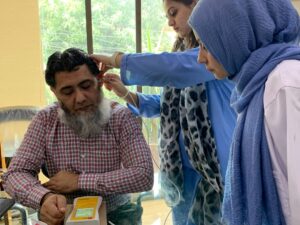
Training project for speech therapists in Pakistan ©Ear Foundation Pakistan
Thanks to the Hearing Healthcare Alliance, there is now a training center for ear surgery in Tanzania. “The center improves the exchange of knowledge between ENT specialists throughout East Africa and also the care of people with hearing loss,” says Aslam Nkya, a doctor at Muhimbili National Hospital in Dar-Es-Salaam. In Nepal, the Medical Institute at Tribhuvan University in Kathmandu received additional teaching staff and infrastructure for audiology and speech therapy. At Ziauddin University in Karachi, Pakistan, there are now also additional training courses for speech therapists. Amina Siddiqui, Director of the College of Speech, Language & Hearing Sciences based there, is convinced that this will enable people with hearing loss to help shape a society with a strong audio-verbal orientation.
Through the Hearing Healthcare Alliance, over 40,000 children have already undergone newborn hearing screening, a simple examination like the one that changed Mishal's life forever. At the opening ceremony of the Hearing Healthcare Alliance in Pakistan, the teenager said: “The timing of the diagnosis and intervention determines whether deaf children will learn to speak and other skills. From my own experience, I am in favor of this happening as early as possible!”



